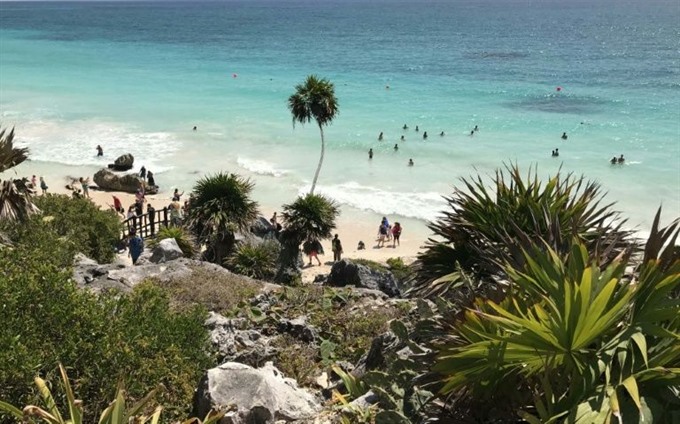 Life & Style
Life & Style

" />Mexican President Enrique Pena Nieto announced plans on Monday for an US$840 million Mayan theme park on the Caribbean coast to rival the major theme parks in the United States.
 |
| Tourists visit Tulum National Park in Mexico’s Quintana Roo state, part of the so-called Riviera Maya, a stretch of pristine beaches on the country’s southeastern coast. — AFP Photo |
MEXICO CITY — Mexican President Enrique Pena Nieto announced plans on Monday for an US$840 million Mayan theme park on the Caribbean coast to rival the major theme parks in the United States.
The park, dubbed Amikoo -- or "friend" in the Mayan language -- will have rides and characters based on Mayan mythology and be built in two phases in the so-called Riviera Maya, a stretch of pristine beaches on Mexico’s southeastern coast.
"We’re going to compete with other (parks) up there (in the United States), and I’m sure ours will be better," Pena Nieto said at a ceremony also attended by the Mexican investors behind the project.
Pena Nieto said the park would bolster Mexico’s place as a "high-quality tourism destination."
Mexico became the eighth most-visited country in the world last year, according to the World Tourism Organization, with 35 million international arrivals who spent some $19.6 billion.
The vital sector represents some 8.7 per cent of the Mexican economy.
The new 120-hectare park will have attractions such as a flight simulator that lets visitors fly over popular Mexican tourist attractions, a mock submarine and a pirate ride.
It will also have a 320-room hotel, a Mayan archeology and anthropology museum, and dedicate 75 per cent of its property to environmental conservation.
The first phase is set to open in November 2018 and the second two years later.
Investors say they expect four million to 4.5 million visitors per year. — AFP